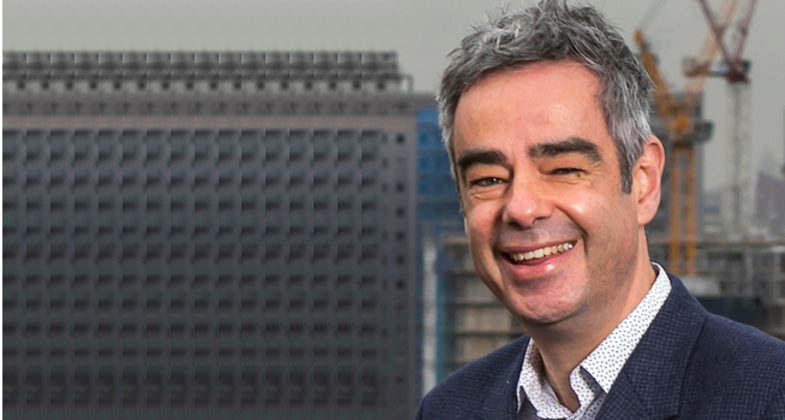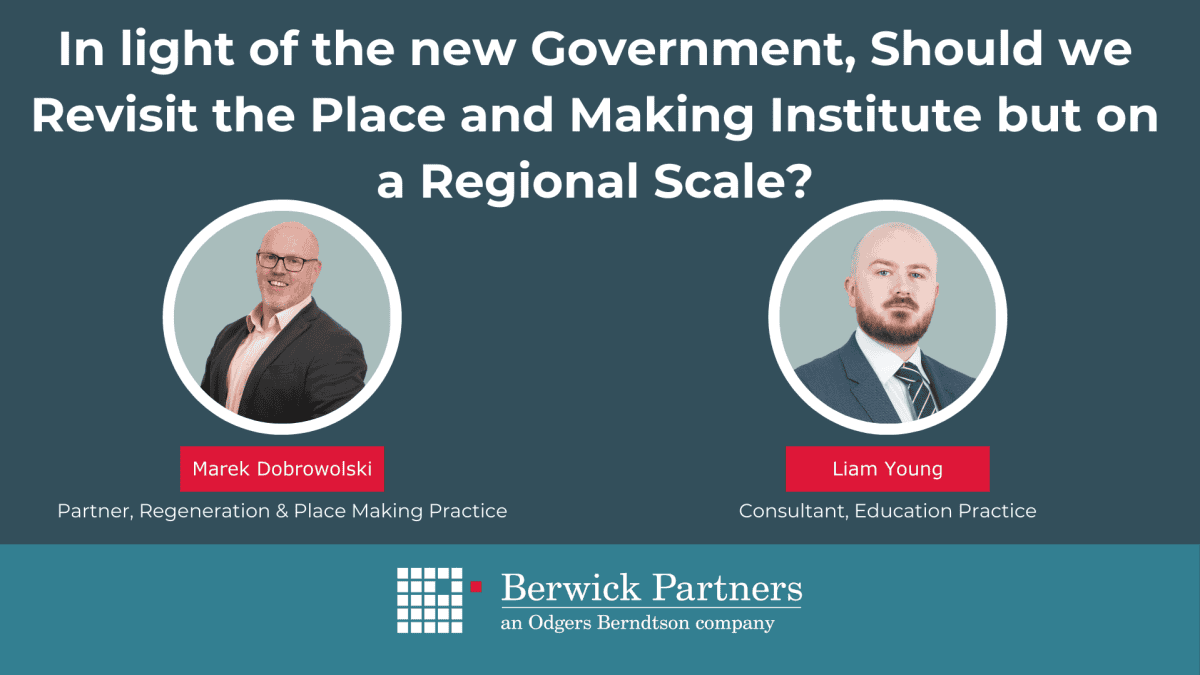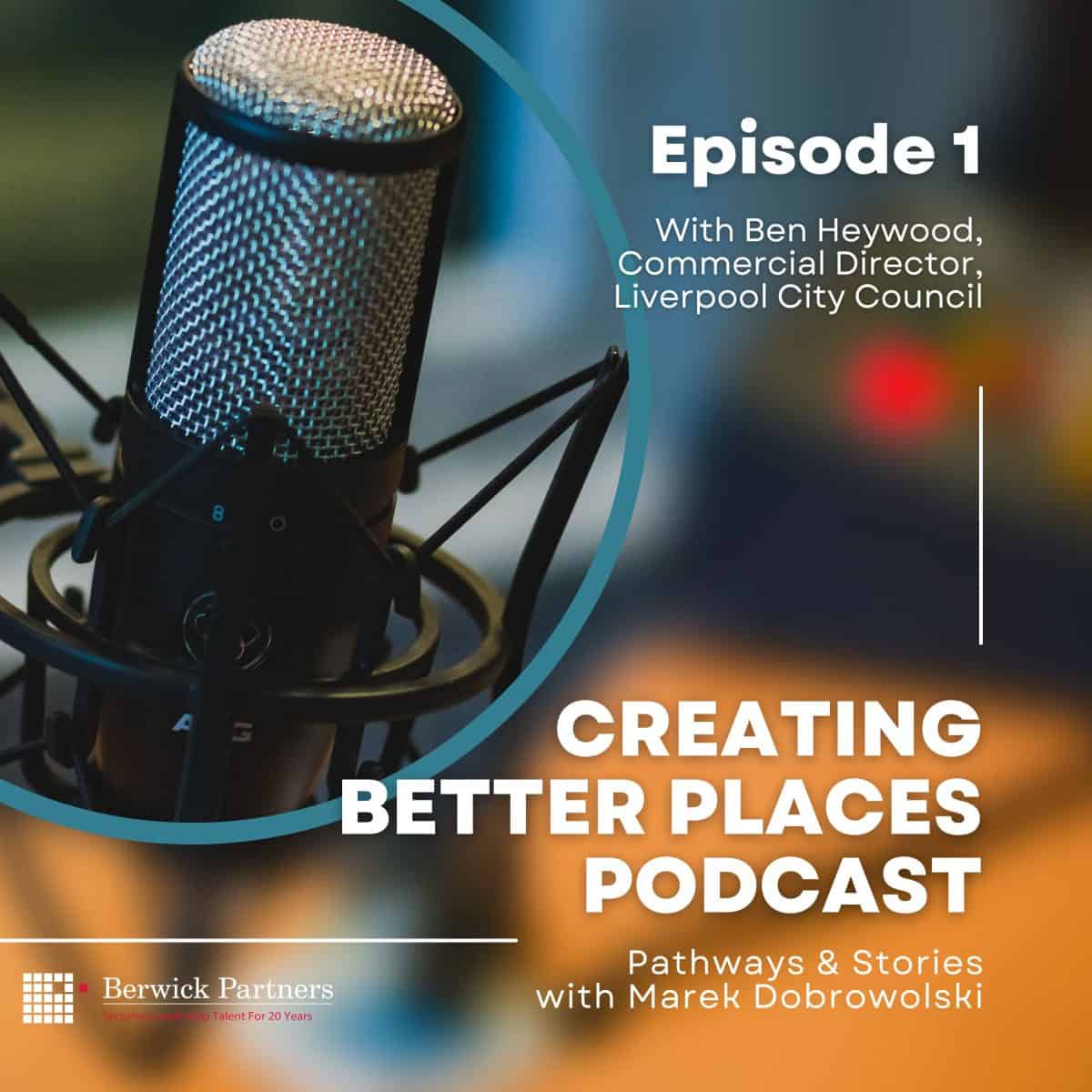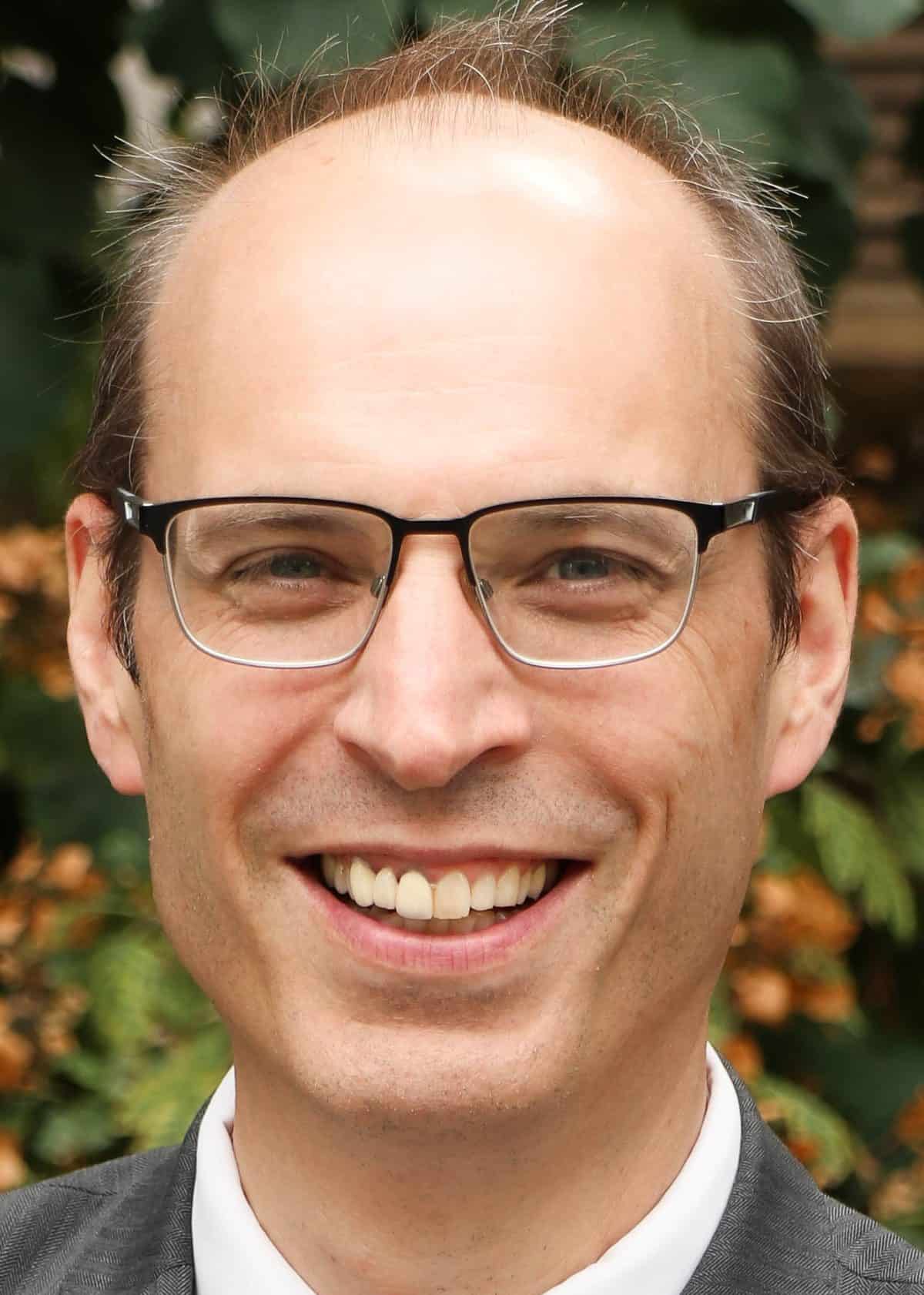Five Minutes with Andy Donald, Chief Executive, London Borough of Redbridge
Andy Donald is one of the UK’s most respected Place Making professionals. During his 15 years in Brent he played a leading role in what has been regarded as one of the stand out regeneration programmes in recent times. Almost five years ago, he swapped North London, for East London, taking on his first Chief Executive role in a Borough that he confesses someone referred to at the time as ‘Sleepy Suburbia’.
We caught up on why there is nothing sleepy about Redbridge, why he passionately believes local authorities shouldn’t outsource their strategy and policy making, and why perhaps this is the time when London is looking beyond its Central Business District.
Andy, was the reality of Redbridge, anything like the perception you had before you became Chief Executive?
Not at all, Redbridge is far from sleepy! People’s perceptions of Redbridge are probably 15 years out of date. When I came here there was a narrative, outside of the Borough, that I picked up on. It was that this was a part of suburban London out on the edge where everybody had nice cosy lives, where people that had done well in London moved out too because the schools were excellent, it’s close to the greenbelt but still close enough that you can access the city quickly.
And for some Redbridge is still all of those things, but for others in our community it is also very different.
Our schools are excellent, it is an incredibly green part of the capital and there is the infrastructure to access the city quickly, so on the face of it, there are elements of that cosiness. However, we also face many of the challenges that other, urban parts of London and the country face, human trafficking, radicalisation, they are here in Redbridge too and they are also part of the story. It’s an incredibly diverse and increasingly diverse Borough, the third most diverse borough in the country, and it has experienced a really significant period of population growth and migration over a relatively short period of time.
So, what I found here was this fascinating juxtaposition of the new and the past, and that mix of heritage and future is still current and still important. If you go back, then Ilford was the capital of East London. If you look now at the way that London is growing, and the socio-economic changes taking place, then Redbridge has a really important role to play in the future of London as well.
If you think the City grew out of a series of villages, then the impact of COVID-19 and how it has re-focused people’s sense of locality and place, then there are some really interesting opportunities for us in that actually. The ideas around the 15 minute city, how this ties into community wealth building, and then the jobs of the future – where they are based, how people will work, these were already areas we were thinking about before the pandemic, and now we need to act upon.
The impact of COVID-19 means that perhaps this is the time when we stop as a city being so reliant on the CBD, and actually start to concentrate our efforts on real, community based growth listening to how our communities want to access services and what they need to thrive.
How have you set about ensuring the organisation was equipped to deliver on that potential over the past few years?
Actually, when I looked at this job, and started to dig into what was needed, the more I really wanted to do it and to come to Redbridge. When I arrived, I found an organisation and an administration very open to change and transformation. There was a sense of pent up frustration that hadn’t really been aired and it was apparent that there was a feeling corporately that the council had held itself back.
If I am honest, then I think there had become a culture that matched the outdated perception of cosiness. That it was too difficult to do transformation or change and so the organisation had got a little stuck in its ways and relied on traditional ways of thinking and operating, because that felt safe.
I was honest with the administration and leader when I was interviewed for the role, that the potential of Redbridge was incredible, but to deliver on what they had set out in their manifesto needed a major shift and change in culture.
I was a first-time chief executive, looking to put in practice all the experience that I had pulled together, so they were taking a risk. My pitch to them was that they would get energy, ambition, and deep-rooted commitment to public service. I was also clear that a personal value of mine is a commitment to excellence and delivering excellence in public service.
The members and administration were very onboard with that and shared that view. I was joining at a time of a new administration and an administration that had a sense of ambition. They have been very supportive of the change that I wanted to bring into the organisation, share and push us as officers on the commitment to excellence, and have been open to the ideas that I wanted to bring managerially.
I knew I needed people to buy into the change, and to do that then I had to be out in the organisation and in the Borough. I wanted to be seen as a CEO who would be visible, would talk to the organisation and clear that I was going to build a culture of openness.
That’s something that we started at the beginning and is as important now as it was then, so my style is very much about open leadership. When I arrived, they showed me to a wood panelled office, in the town hall with my name on the door, and that was the last time I went into that room!! I don’t have a desk, I hot desk in the council. People can make an appointment to come and see me at any time, and probably 4-5 staff do that each week.
We also have an ‘extra chair’ on the management team so that anybody from across the organisation can come to share their experiences to listen to what the management team are discussing it’s really clear that we’re not just seem to be saying the right things but that we’re doing the right things.
The first 18 months was spent negotiating the values of the organisation, looking at the culture that we wanted to create, and also working with the administration to really understand what they wanted to do, and how we might achieve that. I then needed to look at the structure and the team, to ensure we had the right people, with the right skills, in the right places to effect this change and importantly that people believed we were going in the right direction, and wanted to be part of it.
At the end of that 18 months I had a session with around 100 staff, the leaders in the organisation and said if you are still here, then it would appear you are up for this change. That was quite daunting, we’d shifted people from quite comfortable positions and asked them to re-shape their thinking, but I was confident at that point that we had a critical mass to deliver on our potential and that aspiration around excellence.
Your background is in Place Making Andy, so how has that shaped you as a Chief Executive and the lens you see Redbridge through?
Fundamentally, I very much believe in the bottom up approach to regeneration, and that’s shaped my career. I wanted to become a Chief Executive, so that I could take all the experience that I have gained, all the learning I have picked up from the teams I have been in and the people I have worked with and for and then put that into action, tempered and adjusted by my own views, values and ideas around leadership.
I look at the impact of the type of community led, bottom up regeneration that we did in Brent, in areas like South Kilburn, and some of that can be really applied in Redbridge.
We start here with our communities, our concept is to put the community at the heart of future development, it is absolutely front and centre. When we engage with partners, with developers, with agencies then they are clear that is how we go about our work.
Alongside our commitment to engagement with our communities, we are clear around how we will look to support them across the whole council. I equally believe in a similar approach to preventative action. Part of our engagement with the community is to say what can we do, to help you help yourself? How can we give you a lift or support at this point so that you can go on, and not need further support?
We don’t shirk our responsibilities here and we are quite happy to put our head above the parapet about our expectations and our aspirations but we also say it as it is, we’ll be honest with the community. We want an authentic change in dialogue with people in Redbridge.
We are working with you on the appointment of two roles, a Director of Strategy and Assistant Director of Policy and Change. In recent years there has been a decline in roles like this, but when we spoke you were clear that you saw these as critical appointments, how so?
I agree about the decline in roles, and personally I think it is odd. Both these roles sit at the very heart of the council. They are the enablers in the council, they are absolutely about how we as an organisation go about enabling change, place making, service provision, social care, culture, everything. If we are honest about having a genuinely different dialogue with our community, with our partners then we need to reflect that dialogue, those aspirations, the challenges we are told people are facing in our strategies in how we act, how we engage and our services.
I don’t understand, really, why organisations, and other councils have to some degree outsourced this. So in these roles we absolutely want people who can look at best practice, come up with ideas, innovate, say this is happening here, and it’s really interesting, we could learn from this or possibly alter it for Redbridge, so that considered, consultancy horizon scanning. Equally importantly we want them in our organisation, with our partners, listening to our organisation, listening to what the leader and the administration want to do, trying to identify where there are blockages, what can be shifted, what can we do differently – how can we do this?
Absolutely strategy, policy is important but in Redbridge, delivering on ideas is also critical and that’s what these roles are about. Providing us with real corporate intellect but coupled with a sense of how we can turn this into action.
If someone is reading this and thinking these roles sound interesting, Redbridge seems ambitious and different, this CEO seems to think differently, what are they going to find if they come to Redbridge, what can they expect, and what will the councils expectations be of them?
So, they will be right, Redbridge is different and purposefully so. We spoke earlier about our focus on preventative strategies and this is fundamental, these roles will be about looking upstream and identifying where we can intervene to get ahead of issues.
If they are the type of person looking at structure charts and resources and asking questions around have I got lots of people in my team and lots of physical levers to pull and who reports where, then perhaps this isn’t the right role for them.
The actual levers they have in these roles are enormous, it is basically the whole council and the partnerships around us, both existing and that could be formed that they get to influence, and effect change through.
This is not about centre versus services. You can’t command and control your way out of a pandemic, bluntly. There’s a lot of ambiguity about the future, and that’s just the reality, and so it means corporately we need to have an absolute and clear direction of travel, but we also have to be nimble and agile to both deal with the challenges thrown up, and to make sure we capture the opportunities that may come after the pandemic.
The future for Redbridge and the future for council means we will have to challenge the norm, and we need people comfortable and excited at the prospect of coming up with new ways of delivering public service, and the critical word there is delivering.
The appeal is that Redbridge is an energetic environment where our commitment to excellence is absolutely deep rooted and hard wired throughout the organisation. If they are interested in wanting to really make a difference, in an environment that is open minded and places great emphasis on new ideas, innovation and a willingness to deliver public service, then they will absolutely be in the right place.
Marek Dobrowolski leads our Place Practice nationally. His focus is on Regeneration, Economic Development & Infrastructure appointments in Local Government and its associated agencies.





